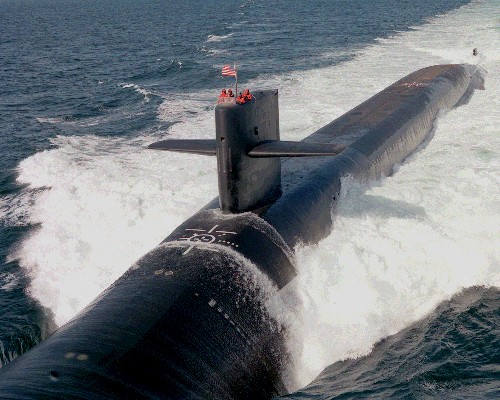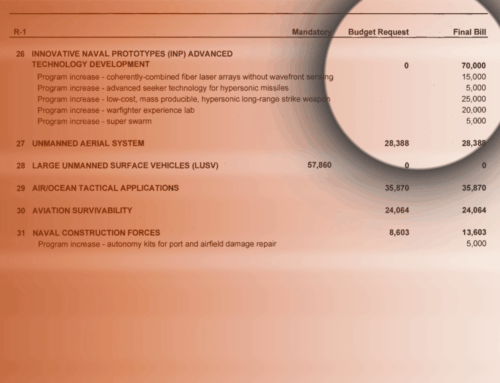 |
| The USS Alaska |
This week, Sen. John McCain, R-Ariz., said this about the debate on how to fund the replacement for the Navy's Ohio class submarine: “I do believe that you only have so much money in the budget – you can call it and put it in some particular area, you can earmark it, you can do a lot of things but it's not going to change the amount of money.”
It's good to hear the chairman of the Senate Armed Services Committee state the obvious about the so-called “National Sea-based Deterrence Fund.” This latest Congressional budget gimmick originated in the fiscal year 2015 Pentagon policy bill and was expanded in the fiscal year 2016 version recently signed into law by the president.
McCain is exactly right. Moving the money to a new account in the office of the secretary of defense for purposes of replacing the existing ballistic missile submarine force isn't going to save any money. In fact, it will probably lead to an overall increase in Pentagon spending since removing those costs from the Navy's shipbuilding budget will mean the Navy spends that money on a different class of ships. It also prompted Air Force leaders to start talking about a similar fund for the Long Range Strike Bomber. When asked in January about the fund, Lt. General Stephen Wilson said, “We're watching that real closely and how the Navy's doing that, … We're looking to see how we can do something like that.”
The reason anyone but me (and the Air Force leadership) is even talking about this arcane budget maneuver is because of a recent Congressional Budget Office report indicating the new fund could save money. Specifically, the report states, “if the Congress funded the purchase of the Ohio Replacement submarines through the National Sea-Based Deterrence Fund, which was established in the fiscal year 2015 National Defense Authorization Act, the Navy could potentially save several hundred million dollars per submarine by purchasing components and materials for several submarines at the same time.”
This has been widely quoted, and touted, by proponents of this special fund. But the second portion of the same paragraph has largely been ignored: “A disadvantage of that acquisition strategy is that if the Congress decided not to build all of the submarines for which the Navy purchased some materials, those materials might go unused.”
Let me take this argument a step further. It isn't the Sea-based Deterrence Fund itself that would potentially save money, it's the additional authority to do long lead purchasing. This is a clever side argument that proponents of the special fund would like to promote. But the Congress, if it's that gung-ho to get into long lead procurement, could simply give the Navy that authority. No special fund is needed.
But let's spin that idea out to one possible conclusion. Let's say Congress actually puts money into this fund in the office of the secretary of defense. And let's say that money is used to purchase specialty metals, a very expensive component of submarines. The current language would allow the purchase of enough of these specialty metals – or any other component – for five or 10 submarines in advance of Congress actually authorizing the purchase of that many submarines. So let's keep pulling on this thread and imagining what could happen. This fund is used to enter into contracts to buy the very expensive specialty metals to build 10 submarines. What if the Navy – or some future Congress – decides to reduce the purchase of these submarines below the 12 currently planned? The same Congressional Budget Office recommended just that a few years ago; limiting ballistic missile submarines to eight would save $11 billion. That's a lot less likely to happen if the U.S. government has entered into a very expensive contract to purchase long lead procurement items.
And, let's face it, that's where this is actually heading. Shipbuilders, and their friends in Congress, want to reduce the likelihood that any future president, Navy leader or Congress can cut the purchase of the next generation of ballistic missile submarines.
So far the appropriations committees, which write the bills that actually spend federal funds, have declined to place any money in such a fund. Other members of Congress who believe that Congressional prerogatives would be short circuited by a fund that spends money on components of a submarine – or any other weapon system – that hasn't been approved by the Congress, should oppose this budget charade.










